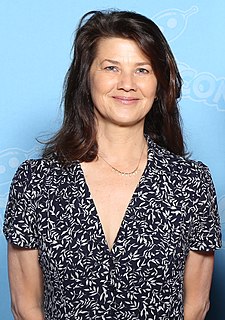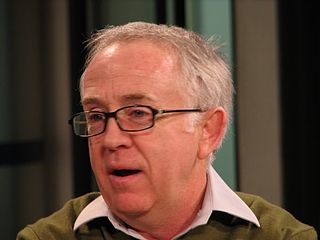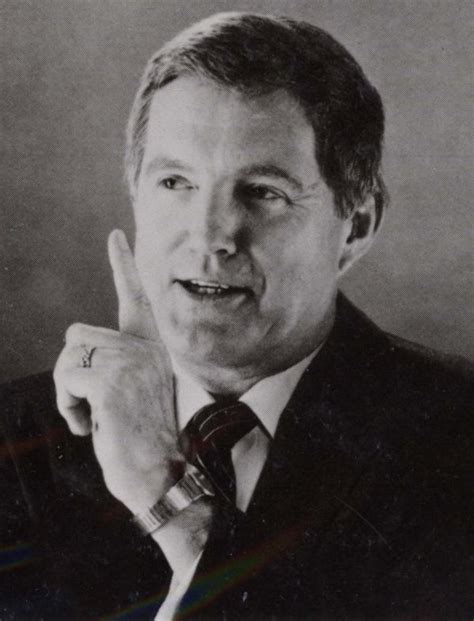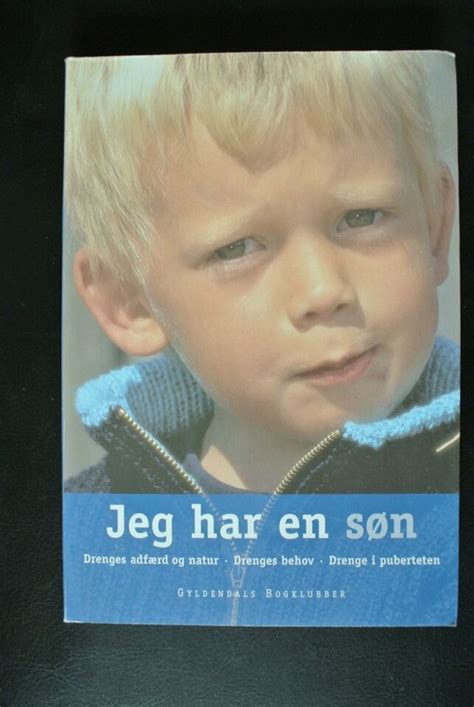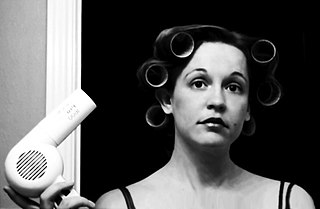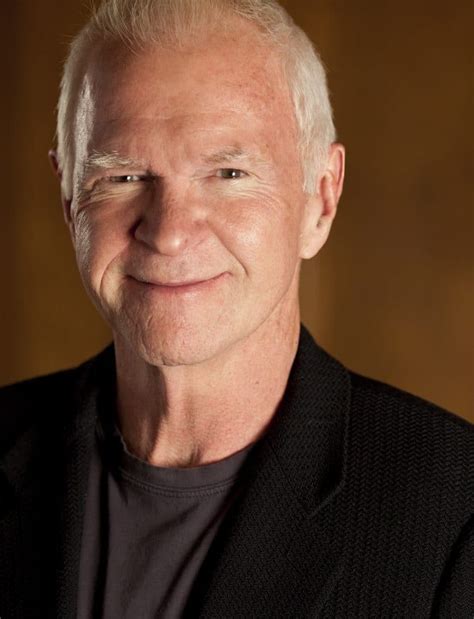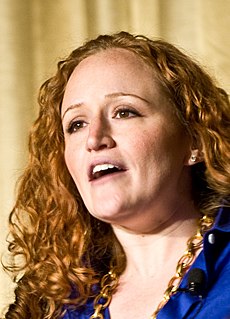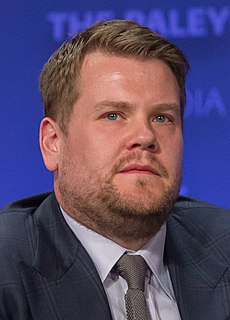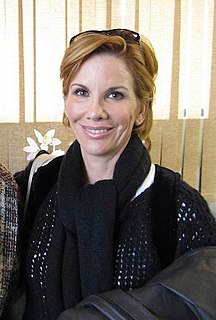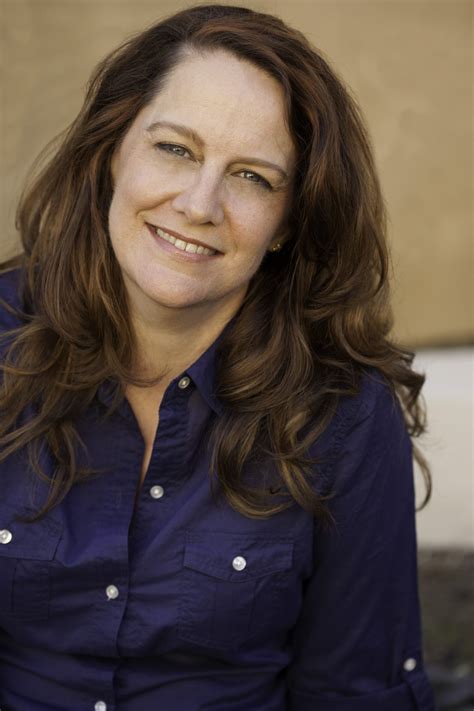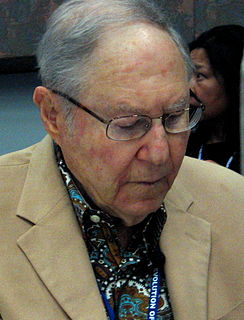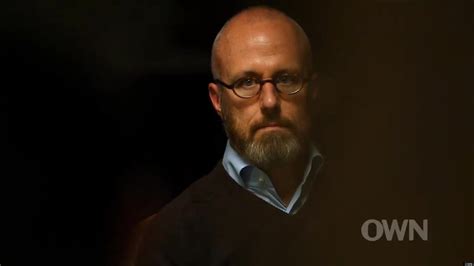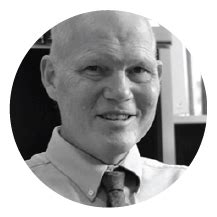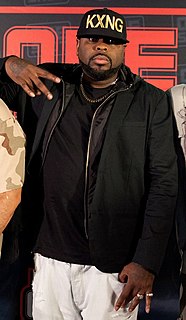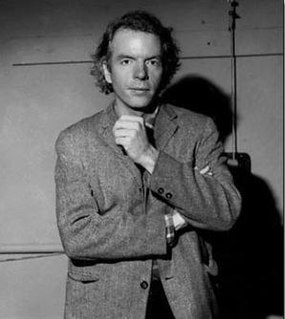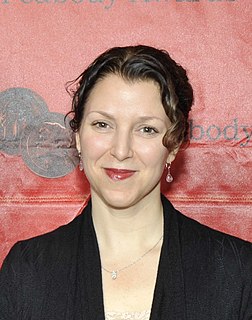Top 350 Therapist Quotes & Sayings - Page 6
Explore popular Therapist quotes.
Last updated on April 21, 2025.
People still think that a woman who doesn't have children or doesn't want children is really lacking in something. I've seen this over and over again in my life. I've had this thinking used against me repeatedly. I remember I had a therapist once, and I brought this up, and she said, "Well, I think women who don't have children feel very self-critical. They feel bad, so they think other people are critical in that way."
The bureaucratic manager, the consuming aesthete, the therapist, the protester and their numerous kindred occupy almost all the available culturally recognizable roles, the notions of the expertise of the few and of the moral agency of everyone are the presuppositions of the dramas which those characters enact. To cry out that the emperor had no clothes on was at least to pick on one man only to the amusement of everyone else; to declare that almost everyone is dressed in rags is much less likely to be popular.
The one that I really call love is when I feel like everything's okay. That state of, it's all right here. I spent most of my adult life looking for romantic love. I've been in therapy since '87. What I learned was, that connection that I was looking for that I thought was really romantic love, my therapist literally said, "Well, when you feel that next, you probably shouldn't go towards that for a partner."
In the high school classroom you are a drill sergent, a rabbi, a shoulder to cry on, a disciplinarian, a singer, a low-level scholar, a clerk, a referee, a clown, a counselor, a dress-code enforcer, a conductor, an apologist, a philosopher, a collaborator, a tap dancer, a politician, a therapist, a fool, a traffic cop, a priest, a mother-father-brother-sister-uncle-aunt, a bookeeper, a critic, a psychologist, the last straw.
The therapist can interpret, advise, provide the emotional acceptance and support that nurtures personal growth, and above all, he can listen. I do not mean that he can simply hear the other, but that he will listen actively and purposefully, responding with the instrument of his trade, that is, with the personal vulnerability of his own trembling self. This listening is that which will facilitate the patient's telling of his tale, the telling that can set him free. (5)
If you're angry, you don't have to write a poem dealing with the cause of your anger. But it needs to be an angry poem. So go ahead... write one. I know you're at least a little bit angry with me. And when you're done with your poem, decipher it as if you'd just found it printed in a textbook and know absolutely nothing about its author. The results can be amazing...and scary. But it's always cheaper than a therapist.
My mom will never march in a gay pride parade with a big sign. She is very private. She lives in Chattanooga. She tries so hard to understand me and my life. But she said to me once, "Leslie, if I live to be 105 I'll never understand this need you have to air your dirty laundry. Why can't you just whisper it to a therapist?!" She doesn't understand.
You know, I think everybody I've seen has come from some other therapy, and almost invariably it's very much the same thing: the therapist is too disinterested, a little too aloof, a little too inactive. They're not really interested in the person, he doesn't relate to the person. All these things I've written so much about. That's why I've made such a practice really, over and over to hammer home the point of self-revelation and being more of yourself and showing yourself. Every book I write I want to get that in there.
One reason I can be more tolerant than most is that as a therapist I have the advantage of information about my patients that most people are not privy to. And I discover that we rarely if ever see the totality of another in ordinary social intercourse. When an individual appears mean and lazy, we are only seeing one part of the person, elicited by a particular set of circumstances on a particular day, and we do well to wait a while before concluding that what we see is the whole person.
We read novels because we need stories; we crave them; we can’t live without telling them and hearing them. Stories are how we make sense of our lives and of the world. When we’re distressed and go to therapy, our therapist’s job is to help us tell our story. Life doesn’t come with plots; it’s messy and chaotic; life is one damn, inexplicable thing after another. And we can’t have that. We insist on meaning. And so we tell stories so that our lives make sense.
I always have my group of friends at the gym. We used to go hang out somewhere before. Now we're just hanging out at the gym. We have sparring parties where everyone beats each other up, but then we all eat my dad's cooking, and I hire a massage therapist, so everyone is just kicking back and having a good time. I just keep the environment great.
A lot of my friends they call me 'the therapist'. They come to me looking for advice. I must be doing something right because they keep coming back. But I'm not very good at kind of looking into my own world and trying to pick apart what is really wrong and fix those things. I like to kind of shy away from certain issues and turn away.
Parenting is not logical. If it were, we would never have to read a book, never need a family therapist, and never feel the urge to call a close friend late at night for support after a particularly trying bedtime scene. . . . We have moments of logic, but life is run by a much larger force. Life is filled with disagreement, opposition, illusion, irrational thinking, miracle, meaning, surprise, and wonder.
Telling the truth. I finally have that with my boyfriend, and that makes me vulnerable constantly. Without vulnerability, you're not really alive. Your vulnerability is your power. Sitting in your house alone, breathing through it. Calling a friend when you need to cry. Being really honest in your therapist's office. Whatever it is. Bringing it into a role, for me. It is your power.
I was always shy. Writing was my only outlet. Because I always hid in a room, I spent a lot of time watching people. When I was a small child I could detect hidden body language in others only I could see. People's emotions rub off on me. When I told this to my therapist she said, "Well, you're an empath." I thought, "No way. Like Star Trek?" And she clarified: because I am so socially uncomfortable, I have compassion for others who I recognize are also struggling. People with anxiety are acutely aware.
One of the first things a relationship therapist learns is that couples argue to burn up energy that could be used for something else. In fact, arguments often serve the purpose of using up energy, so that the couple does not have to take the courageous, creative leap into an unknown they fear. Arguing serves the function of being a zone of familiarity into which you can retreat when you are afraid of making a creative breakthrough.
Anyway, when I got out of the Army, I went to see a therapist. And she said, what seems to be the trouble? And I said I want to give all my money away. And she said, how much do you have? And I said, I owe $300. She stared at me for several seconds, and she said, I see. Well, let's get to work. And maybe by the time you do have some money, you'll be wise enough to know what to do with it.
As anyone who has received or dispensed psychotherapy knows, it's a profession whose mainspring is love. Nearly everyone who visits a therapist has a love disorder of one sort or another, and each has a story to tell - of love lost or denied, love twisted or betrayed, love perverted or shackled to violence. Broken attachments litter the office floors like pick-up sticks. People appear with frayed seams and spilling pockets.
My therapist told me I need to learn to love myself. It sounds easy enough, but really, how do you just wake up one day and learn that? It feels like something you should just do involuntarily, like swallowing or blinking, but now I have to work on it. It feels so forced. I mean, I know I went to a good school, and people tell me I'm smart and creative, but I don't KNOW that. I don't know how to make myself feel that.
The only thing I know is that no one ever sat in a therapist's or a psychiatrist's room saying, 'My parents just loved me too much.' The only thing you can do is love them and be around. Kids don't really care what your car is like or how big their house is. All they really care about is that you are around.
Choosing a director is like choosing a therapist - you want somebody who is going to be a step or two ahead of you, who can interpret and articulate your intentions better than you can, with the benefit of objectivity. I look for a collaborator who is going to help bring to life, on stage, in three dimensions, what is on the page. I wouldn't want a director who imposes conceits or distrusts the text or who has prejudged the characters.
My therapist shared a theory she had come across, and I liked it. It held that before making your next journey in this life, your soul sits at a large, circular conference table and chooses the souls who are going to be a part of your life. As for which particular people would be chosen, I figured they would be individuals from previous lives with whom there was still unfinished business.
I don't want it to end, and so, as every therapist knows, the ego does not want an end to its “problems” because they are part of its identity. If no one will listen to my sad story, I can tell it to myself in my head, over and over, and feel sorry for myself, and so have an identity as someone who is being treated unfairly by life or other people, fate or God. It gives definition to my self-image, makes me into someone, and that is all that matters to the ego.
I have known know many therapists who come out of Pacifica Graduate Institute and love being both artists and therapists at the same time, like Maureen Murdock. They are photographers and dancers and other kinds of things and therapists at the same time. I think it really makes them a much more interesting therapist because they're so engaged with the imagination and the creativity and the depths of who they are.
People are often very frightened of their anger. They feel it will cause them to do something harmful. If you have this fear, create a safe situation where you can express your anger, alone or with a trusted therapist or friend. Allow yourself to talk angrily, shout, hit pillows, whatever you feel like. Once you've done this in a safe environment, you will have released some of the charge, and you can look underneath the anger to find what you need to do to take better care of yourself. Like any emotion, anger is a valuable tool, teaching us who we are and how we feel.
While the primary function of formal Buddhist meditation is to create the possibility of the experience of "being," my work as a therapist has shown me that the demands of intimate life can be just as useful as meditation in moving people toward this capacity. Just as in formal meditation, intimate relationships teach us that the more we relate to each other as objects, the greater our disappointment. The trick, as in meditation, is to use this disappointment to change the way we relate.
To a lot of people, my job is really fancy, so they're like, "Oh, whoah, you're a musician, wow!" Some people go to you, "Oh my god, you're a journalist!" And some people go, "What, you're a therapist? That's incredible!" So everyone, to a certain extent, has other people that you get impressed by, without even having a proper conversation or getting to know them. You're just like, "Oohhh, they're a bit fancy!"
I remember a group therapy session when one of the patients was reluctantly turning his corner. He would accept it, he said, but he wouldn't like the idea of having to solve problems every day for the rest of his life. My co-therapist told him that it was not required that he like it. She shared her own displeasure, saying: 'I remember that when I first discovered what life was like, I was furious. I guess I'm still kind of mad sometimes.' (135)
Focusing-Oriented Art Therapy is a major contribution to art therapy literature and practice. Laury Rappaport introduces a contemplative method and philosophy grounded in the body's felt-sense of experience and its innate and largely unrecognized wisdom. This intellectually provocative, yet thoroughly practical text, establishes Rappaport as an emergent leader in the art therapy world and author of a book that every student and art therapist must read in order to appreciate the depth and breadth of our discipline.
A comedian is simply a different kind of therapist. A comedian is a psychologist and a psychiatrist rolled into one. Except I can't prescribe medicine. (You still need a doctorate, which is bullshit.) Okay, so I'm not like a psychiatrist. Fine. But I'm still like a psychologist (except I can't diagnose or treat mental illness).
The therapist does not treat patients by simply giving them another set of beliefs. He or she tries to help them see which kinds of ideas and beliefs have led to their suffering. Many patients want to get rid of their painful feelings, but they do not want to get rid of their beliefs, the viewpoints that are the very roots of their feelings.
Our family makes us who we are, defines us totally. When you go to a therapist or have analysis, whatever reason you go in for, they will always bring you back to your family. We're strong or weak according to what family we have. You might have left them long ago, might not even talk to them, but something lingers; we have no choice.
For some that will mean getting the help or expertise of a counselor that can help them walk through and navigate through some of the traumatic things that they've been through in their life. But to say that people who have same-sex attractions are the only group of people who need to go to a therapist to completely resolve those attractions isn't something I find biblically accurate.
We need to make seeing a therapist more accessible; we've got to crack down on this and allow people the opportunity to seek help. It's going to be a game-changer. I would love people to become more vulnerable and reach out and ask for help. I would never want somebody to go through the feelings I had, almost exactly three years ago, of not wanting to be alive. That's a scary thing, and to think of where I am today compared to that - that's way bigger than winning a gold medal.
The trouble today is that many Christians live in a kind of bubble of assumptions about what their Christianity means, especially if it places them comfortably among "the good guys," - assumptions that are likely to be drawn as much from folk-Christianity, surrounding political culture, popular pulp-books about the "End Times," or their favourite guru writer or therapist, than from sober and comprehensive reading of the Bible as a whole. Prophets and preachers have the unwelcome task of pricking that bubble with the sharpness of actual texts and teachings of the Bible itself.
Everyone needs a spiritual guide: a minister, rabbi, counselor, wise friend, or therapist. My own wise friend is my dog. He has deep knowledge to impart. He makes friends easily and doesn't hold a grudge. He enjoys simple pleasures and takes each day as it comes. Like a true Zen master he eats when he is hungry and sleeps when he is tired. He's not hung up about sex. Best of all, he befriends me with an unconditional love that human beings would do well to imitate.
She told her therapist it reminded her of coming home the summer after her freshman year at Rutgers, stepping back into the warm bath of family and friends, loving it for a week or two, and then feeling trapped, dying to return to school, missing her roommates and her cute new boyfriend, the classes and the parties and the giggly talks before bed, understanding for the first time that that was her real life now, that this, despite everything she'd ever loved about it, was finished for good.
Somebody gotta tell you this:
Cancer kills way more Americans than any Arabic terrorist.
We use more money to fight them than finding a cure,
So a little kid sits there with his chemo-therapist.
Hair falling out while his vital signs weaken...
He'll be dead while his parent are in debt for his treatment.
A friend is more than a therapist or confessor, even though a friend can sometimes heal us and offer us God's forgiveness. A friend is that other person with whom we can share our solitude, our silence, and our prayer. A friend is that other person with whom we can look at a tree and say, "Isn't that beautiful," or sit on the beach and silently watch the sun disappear under the horizon. With a friend we don't have to say or do something special. With a friend we can be still and know that God is there with both of us.
Both the five-year-olds looked at me with bewilderment and a bit of fearful uncertainty. I had a sudden horrifying image of the woman I might become if I'm not careful: Crazy Aunt Liz. The divorcee in the muumuu with the dyed orange hair who doesn't eat dairy but smokes menthols, who's always just coming back from her astrology cruise or breaking up with her aroma-therapist boyfriend, who reads the Tarot cards of kindergarteners and says things like, "Bring Aunty Liz another wine cooler, baby, and I'll let you wear my mood ring.
When I was in therapy about two years ago, one day I noticed that I hadn't had any children. And I like children at a distance. I wondered if I'd like them up close. I wondered why I didn't have any. I wondered if it was a mistake, or if I'd done it on purpose, or what. And I noticed my therapist didn't have any children either. He had pictures of his cats on the wall. Framed.
Facilitative attitudes (and skills) can help a therapist gain entry into the group Freedom from a desire to control the outcome, and respect for the capacity of the group, and skills in releasing individual expression Openness to all attitudes no matter how extreme or unrealistic they may seem Acceptance of the problems experienced by the group where they are clearly defined as issues Allowance of the freedom of choices in direction, either for the group or individuals particularly in the near future
I started getting these attacks in 2009, just as my music career was taking off. I'd be doing photo-shoots and started to feel like I was having heart attacks. Increasingly I found it difficult to step outside my flat. Things started to get better after I saw a therapist, who told me I needed to make peace with my panic attacks.
Therapy isn't curing somebody of something; it is a means of helping a person explore himself, his life, his consciousness. My purpose as a therapist is to find out what it means to be human. Every human being must have a point at which he stands against the culture, where he says, "This is me and the world be damned!" Leaders have always been the ones to stand against the society - Socrates, Christ, Freud, all the way down the line.
If you go to a therapist, they say, 'Are you sure? How do you feel about your wrinkles?' And I say, 'I don't know, because I don't really see them.' I see my hands, but I don't see my face, so it's not a torment. I only see it for five minutes in the morning when I brush my teeth! When you read women's magazines you always read about this drama of getting old, about anti-aging cream and plastic surgery and whatever else. But I think if you're independent, like I have grown to be, it's welcome.


